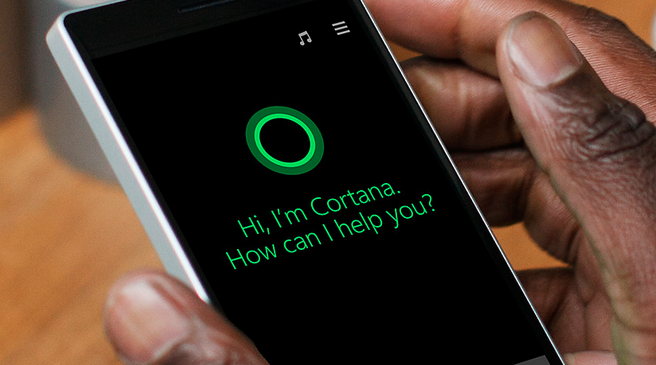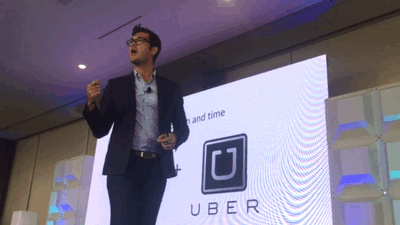Mila Hose | Aug 26, 2016 11:01:16 AM
4 Min Read

Voice search refers to one’s smartphone, desktop computer or any other entry point that uses voice, like Google’s microphone or Amazon’s Echo. When someone activates a personal assistant using their voice, they are performing a voice search. In the world of smartphones and mobile devices, speech is increasingly becoming the preferred search method of choice for users who wish to perform queries. John Gagnon of Microsoft’s Bing talks about the future of voice search technology and how it relates to local search.
Who Uses Voice Search?
Last summer, Windows 10 launched Cortana, a voice-activated personal assistant, right on the desktop. “So, we have some amazing data on what people are using Cortana for,” Gagnon explained. Interestingly, both adults and teens are primarily using personal assistances to ask for directions.
Research conducted by Microsoft shows that the majority of Cortana queries are personal and conversational, such as “Where do I live?” “Where is my wife?” and “Who is my wife?” Cortana’s responses will always be web-based, but she is serious about giving the searcher the most accurate and high-quality results. This is often an impossible task, however, when the web results for local businesses often display inaccurate or inconsistent data. In order to benefit from the increase in local search queries performed through personal assistants, businesses need to focus on syndicating their data and providing clear and accurate business listings.
What's the Difference Between Voice Search and Text Search?
Microsoft pulled data on for query length for Cortana searches and compared that with query length for general text searches. Results demonstrated that query length for text searches is very short – about 2 words – just enough to give the search engine the basics of the user’s intent. Surprisingly, the successful voice searches, the ones that get the most volume, impressions and clicks, are the ones with 3 words in the keyword or query. This was a little unexpected, as most would assume that the length for voice searches would be significantly longer than for text-based searches.
The primary difference between voice search and text-based search happens in question phrases. Typed searches use computer language, such as “Vietnam vacation deals,” whereas voice searches use conversational language, such as “What are some Vietnam vacation deals for February?” or “How much does it cost to fly to the Vietnam?” Question phrases are a huge key for advertisers, because they signal intent more deeply than text input can. The question phrase being used is a direct indication of the degree of intent of the searcher. For local search marketers, this one signal, the keywords, can help set your budget and bid priorities.
Questions for local businesses normally center on specific keywords that ask for information such as hours, prices, menu choices, service options and directional or nearby searches. This information should give location-based marketers a clear cut idea of how critical it is to have accurate and complete location data. Voice search is hyperlocal, which is largely the result of the majority of smartphone queries being nearby searches and directions-focused. This means that local businesses need to sharpen their local search strategy, because voice search is rapidly becoming the way that customers find local brands.
One way that brands can optimize their local presence is to localize keywords. Get smart with keywords that are relevant and timely for the local searcher. Are there landmarks, stadiums or any other significant cues that could matter for a local searcher? Voice search will continue to trigger more quick answers in the SERPs, because question words are closely related to local searches. For example, “Where is the best Thai food near me?” And “Where can I rent a car today?” These are distinctly local searches and they trigger ads in the SERP that allow users the user to complete their intention without visiting a web page.
Make it a priority to keep your local listings and crowd-sourced sites such as Yelp and Foursequare updated and active. These sites hold a lot of power when the search doesn’t leave the SERPs. Is your address correct? What about your hours and your phone number? Are there customer reviews you need to manage? Accurate and consistent location data is absolutely critical with the increasing prevalence of voice search.
What Can We Expect from Voice Search?
One of the most critical expectations that users come to develop from personal assistants is that they will be able to anticipate our needs and react according to our habits and lifestyle. Consumers expect predictive responses -- they expect personal assistants to know that it’s Tuesday, predict that the user is going to visit points A, B and C because it is Tuesday, predict that each point will be hit at a specific time, because of the user’s prior search history, and then pull up the appropriate directions at just the right time.
Location-based marketers and enterprise brands are in a position to see the voice search industry take a seismic shift, and they have an opportunity to be part of the change. “Personal assistants are about understanding the context of your personal life and making those connections,” said Gagnon. Local brands have a hand in what is seen as normal, what consumers come to expect and how advertisers can be even more effective with intent, personalization and targeting to engage with local consumers and win life-time customers.
Topics: Chat Bots, Voice Search, Artificial Intelligence
Content writer @ Brandify.
Offer Post Justifications Spotted in Local Results
Oct 4, 2021 8:47:46 AM
Monday Memo: More than Brands and Influencers, Consumers Trust Each Other
Sep 27, 2021 7:56:34 AM
Monday Memo: Google Adds “Latino-Owned” to GMB Identity Attributes
Sep 20, 2021 7:58:58 AM
Monday Memo: New Study Shows 94% of Consumers Use Online Business Directories
Sep 13, 2021 7:16:55 AM
Monday Memo: The Page Experience Update Has Fully Rolled Out
Sep 6, 2021 7:43:45 AM